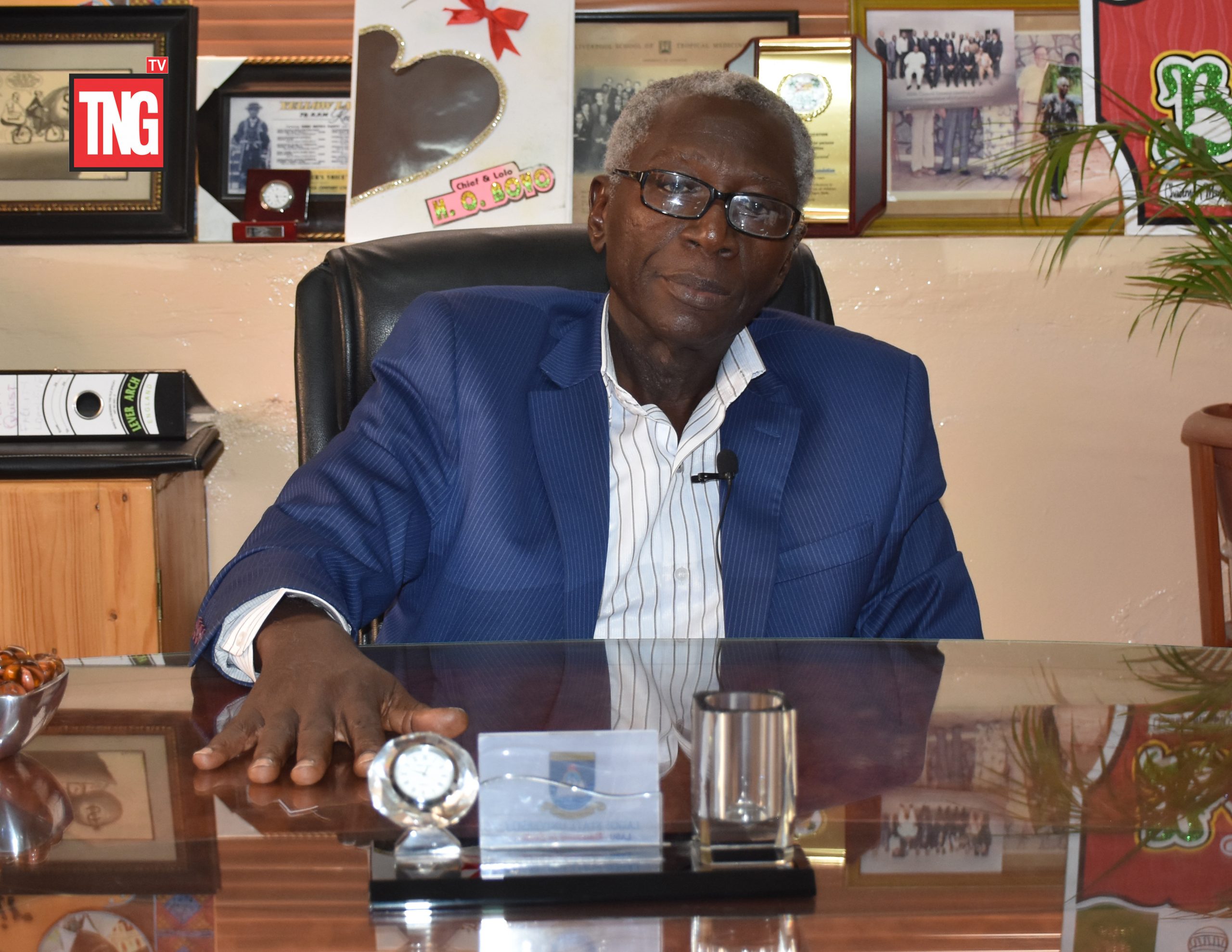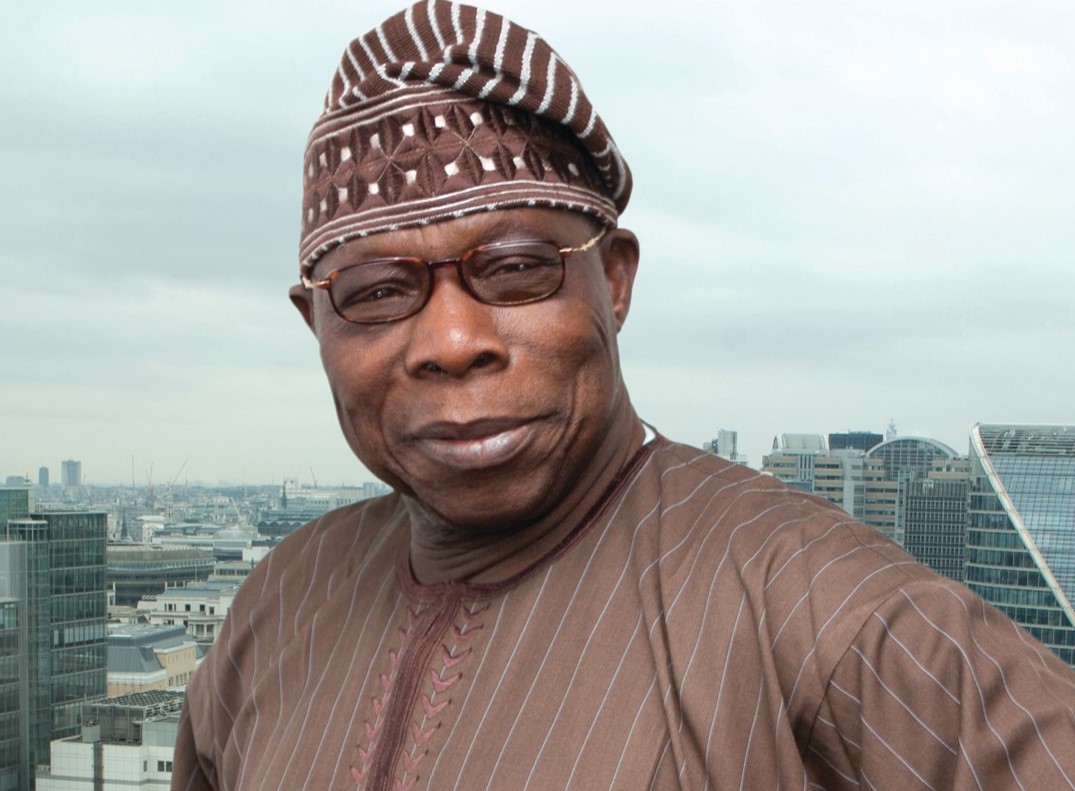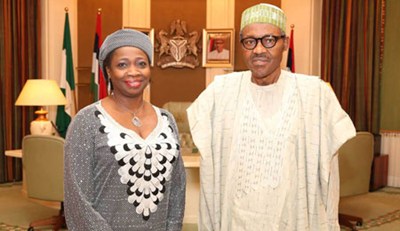In April this year, a tanker spills palm-oil somewhere in Ijebu Ode town, Ogun State of Nigeria. The spillage is massive, and has turned large portions of the road and the drainages on both sides into a sea of crimson. Women, men, young people and children (some as young as five), are nimble and busy, diligently scooping the oil into assorted containers – plastic buckets, tubs, kegs and bottles. They chatter and laugh. The air of glee is evident. You also see some walking casually through the spillage, a bucket or keg in hang, looking for a decent spot to settle and take their scoops. The place is a beehive. Almost a tumult. For the owner of the palm-oil, a whole tanker-spill is a substantial loss. Going by current estimate, this can be anywhere around two million naira ($5,530) or more. In an irony of fate, the poor community may see the spillage as a blessing from above, a sort of manna. Some of them of the Christian faith may even view it as an unmerited favour from God. Perhaps some may not understand that their gain is another person’s pain.
Until the 1980s, Nigeria was the world’s largest exporter of palm produce. That decade, it lost that spot to Malaysia, and later Indonesia, countries that started palm cultivation in commercial quantities in the previous decade with palm nuts imported from West Africa, including Nigeria. Today, even though Nigeria is still ranked among top palm-oil producing countries, underinvestment and decades of neglect of the sector coupled with heavy reliance on the product due to a growing demand by an increasing consumer population and an expanding food manufacturing and household product sector, has resulted in the decline of palm-oil production to the extent that the country has now become a net importer of the commodity. Currently, Nigeria imports around 18.5 percent of its palm-oil from Malaysia.
Another video, which went viral in April, shows swarms of Nigerians scavenging a range of refuse dumps for food because of the lockdown and the economic hardship it brought. Such horror spectacles speak ill of the integrity of Africa’s largest crude oil producing country, a flat-footed and ponderous behemoth that has refused to wake from its deep slumber and translate huge revenues from crude oil production into meaningful social and economic development, as the United Arab Emirates and other oil producing countries in the Middle East have done.
As cases of Coronavirus infections continue to increase in the country and several states still maintaining lockdown, the misery faced by the average Nigerian family is perturbing. Many families have become trapped in the throes of poverty and hunger, which is the reason people would have become compelled to scoop palm-oil from a road or scavenge refuse dumps, both areas harbouring all kinds of unimaginable filth – from dust and decay to excreta, sputum, urine mucus, and assorted harmful microbes. Why should a people so richly blessed be plunged into such level of dystopia, that state or society in which citizens lead wretched, dehumanised, fearful lives that are underpinned by want, squalor, oppression, disease, and overcrowding? Should the people be blamed for being ruled by a bunch of insensate individuals, who lack even the smallest trace of political will? How can such a leadership genuinely cater for the needs of the electorate who voted them into power, and whose interests they swore during the campaign season to serve?
The tragic behaviour of many Nigerian leaders in the context of the present Coronavirus pandemic is revolting and shameful. The political response to the crisis is flawed in many areas of national life. The government, in an assertion of responsibility, had promised regular supply of water and electricity to the citizens. But, that was not to be. It was the usual effort at self-glorification and grand-standing, that behaviour viewed by philosophers as destructive. Since the lockdown was declared over two months ago, majority of Nigerians have been without regular supply of water and electricity. These resources have remained comatose in many areas. Electricity is currently rationed periodically to consumers. Sometimes, even when you get it at the scheduled time, it will last for a short while, blink and then goes back into recess. The situation has become unbearable now that extreme warmth rages in the country, reaching as high as 33°C/91°F in the south. In the north, the warmth can be as high as 40 °C (104 °F). But, wait, the coming months will record even higher temperatures. Nigerians are adaptable and resilient people. They adapt to any situation their leaders, nature and others throw at them. So it is that many families resort to using generators to supplement the meagre power supply by the state agencies. What about the teeming indigent families who are more concerned about putting food on the table than a desire for power supply? One can imagine the agony they face under the present conditions.
Nigerian leaders can be typically unreliable. Everyone knows this. You trust a politician who speaks out of both sides of his or her mouth at your own peril. It is only a foolish Nigerian that doesn’t know or refuses to acknowledge this. Besides the failed promise of constant water and power supply, the Nigerian government also promised to provide relief packages to the most vulnerable people in the country as a response to the economic hardship stemming from the coronavirus plague. The packages aim to guarantee that such families have access to food, shelter, and other basic necessities during the pandemic. On their part, state governments receive allocations from the federal government coupled with tons of money and material donated by their indigenes and other sources. The distribution of these packages have been dismal. As of today, most vulnerable families in disadvantaged communities are yet to receive a single relief package, be it monetary or material. Many families whose members engage in daily-waged labour and occupations such as hairdressing, food vending, street trading, taxi driving, building, carpentry, paining, bricklaying, masonry, bus conducting, artisanship as well as those in other non-essential private sector jobs have been badly affected. These individuals make up about 80 percent of Nigeria’s workforce.
The federal government received large amounts of funds from various sources, including the African Union, the European Union, Germany and Nigerian citizens, including business moguls and a few others, giving the government the financial muscle to provide economic assistance to individuals and families in need. But the government’s incompetent social protection system has been woefully exposed, to say the least. So far, the majority of the teeming poor and vulnerable are yet to receive any form of palliative from the state. The entire distribution mechanism is flawed, as the bureaucratic machinery charged with the implementation of the intervention funds is dishonest. Early in April, the Minister of Humanitarian Affairs, Disaster Management and Social Development, Sadiya Umar Farouk, announced that the Federal Government would be giving out the sum of N20,000 ($52) over four months to each individual registered in the National Social Register of Poor and Vulnerable Households set up in 2016 by President Buhari to fight poverty. While Nigerians welcomed this as an encouraging gesture, the minister, in a move exemplifying sectionalism and ethnic bigotry, stated that the palliatives would be delivered mostly to the poor in the north, because that is the region with the most numbers of poor and vulnerable people. To the chagrin of many, she completely excluded the South East, contending that the region is well-to-do enough to cater for its populations. Umar Farouk is a Muslim from the northern state of Zamfara. For an administration entrenched in secrecy and subterfuge, many were not surprised that the young and inexperienced minister could make such a bold declaration to shut out a section of the country from the government relief package. But, her declaration may not be totally surprising when one considers the political and ethnic realities at play. The South East is the stronghold of the leading opposition party, People’s Democratic Party (PDP). It is also the region of the outlawed Indigenous People of Biafra (IPOB), the Mazi Nnamdi Kanu-led secessionist group that has been a thorn in the flesh of the Buhari administration. But, using such factors as a premise to occlude a whole region in the midst of a brutal pandemic is thoughtless and inhumane. It is similar to a school girl ranting with infantile umbrage. The question remains, by what parameters did the young minister draw her conclusion that the north has the most poor and vulnerable people? Put in another way, what are her indicators of poverty and vulnerability?
One controversy or another has dogged the humanitarian minister’s office. On the 8th of April, the Nigerian National Assembly (NASS) mandated the Minister of Humanitarian Affairs to provide a review of the intervention fund during the lockdown. The NASS wanted to know how the fund was getting down to the real beneficiaries, since such vulnerable people lack access to the internet, and most probably do not have a bank account or Bank Verification Number (BVN), a biometric identification system implemented by the Central Bank of Nigeria to combat illegal banking transactions in Nigeria.
In a rather laughable twist of events that would shock decent societies, the office of the Accountant General of the Federation (AGF) went up in flames two hours after the NASS demanded for the appraisal. That office was where the documents of transactions relating to the Covid-19 relief money were kept. But, never mind, Nigerians are used to this kind of thing, that is, offices burning down whenever money matters are involved or rats invading the president’s office. So, this fire story didn’t surprise Nigerians at all. As usual, there was an explanation of the incident: the fire had started when an air conditioner began sparking somewhere around the third floor, and then quickly spread towards the top floors where the AGF’s office is situated. A typical bedtime story fit for kids.
So far, the federal and state governments have provided only minimal fiscal and material support to very few families. The intervention packages are not coming as promised by the politicians or as expected by most intended beneficiaries, causing many to wonder what is actually wrong. Many parts of the country still have lockdown firmly in place. Families have continued to languish in the throes of deprivation, as costs of goods and essential services are hitting the roof.
It is at a time like this that support is mostly needed from Nigerian abroad. As the politicians continue in their failure to respond to the needs of the people, it is time families began to replace their centrality with the centrality of their relatives abroad. The important role of diasporas in the development of their origin countries has never been contested. Diasporas and migrants alike make remittances to their home countries, and such money serves many useful purposes, including feeding, shelter, clothing, education, business, health and medical care, social occasions, religious activities, and so on. World Bank reports suggest that remittances by Nigerians are among the highest in the world. In 2017, for example, total global remittances stood at $633 billion, with Nigerians accounting for $22 billion, the highest among Africans. In 2018, out of the total global remittances of $689 billion, Nigerians accounted for the sum of $25 billion, representing 6.1% of national GDP. These national figures are more than the GDPs of several peripheral countries of the world.
However, with the current debilitating economic impact of the Coronavirus pandemic on nations, a massive reduction in remittances for the current year is bound to occur across the board. As businesses shut down, economic activities stagnate and many workers lose their jobs, diaspora and migrant communities are also adversely affected, limiting their capacity to make remittances. In spite of this, many migrants continue to make sacrifices, sending parts of their incomes to their needy families and vulnerable groups back home. They continue to do what politicians in their native countries are failing to do or doing disappointingly, either due to lack of resources or outright negligence. Remittances made these critical times are indispensable. They can save lives or make living meaningful. Without doubt, diasporas and migrants everywhere are among the unsung heroes of the covid-19 crisis.
Dr. Theophilus Ejorh is a Sociologist, writer and research consultant based in Dublin, Republic of Ireland.




